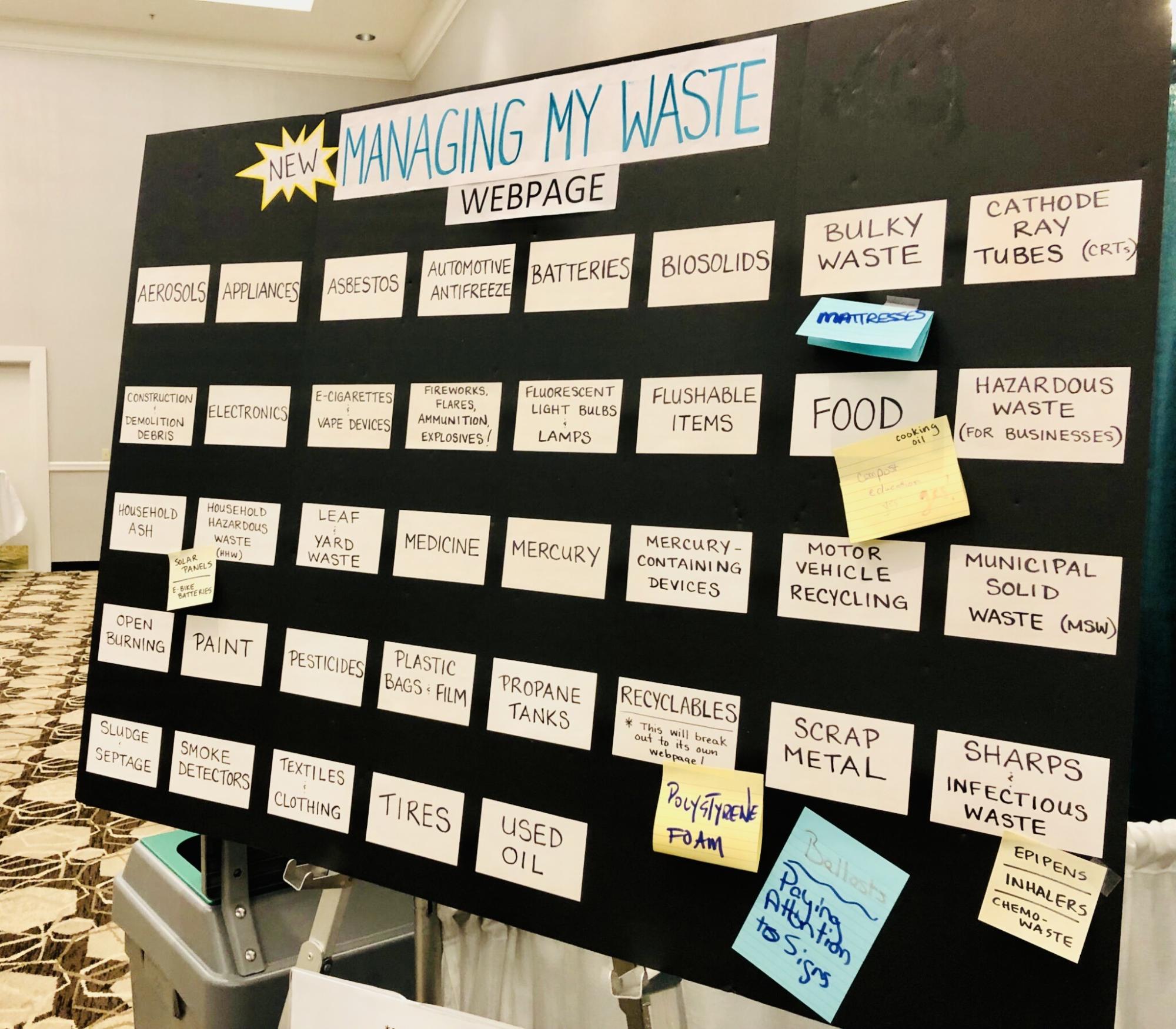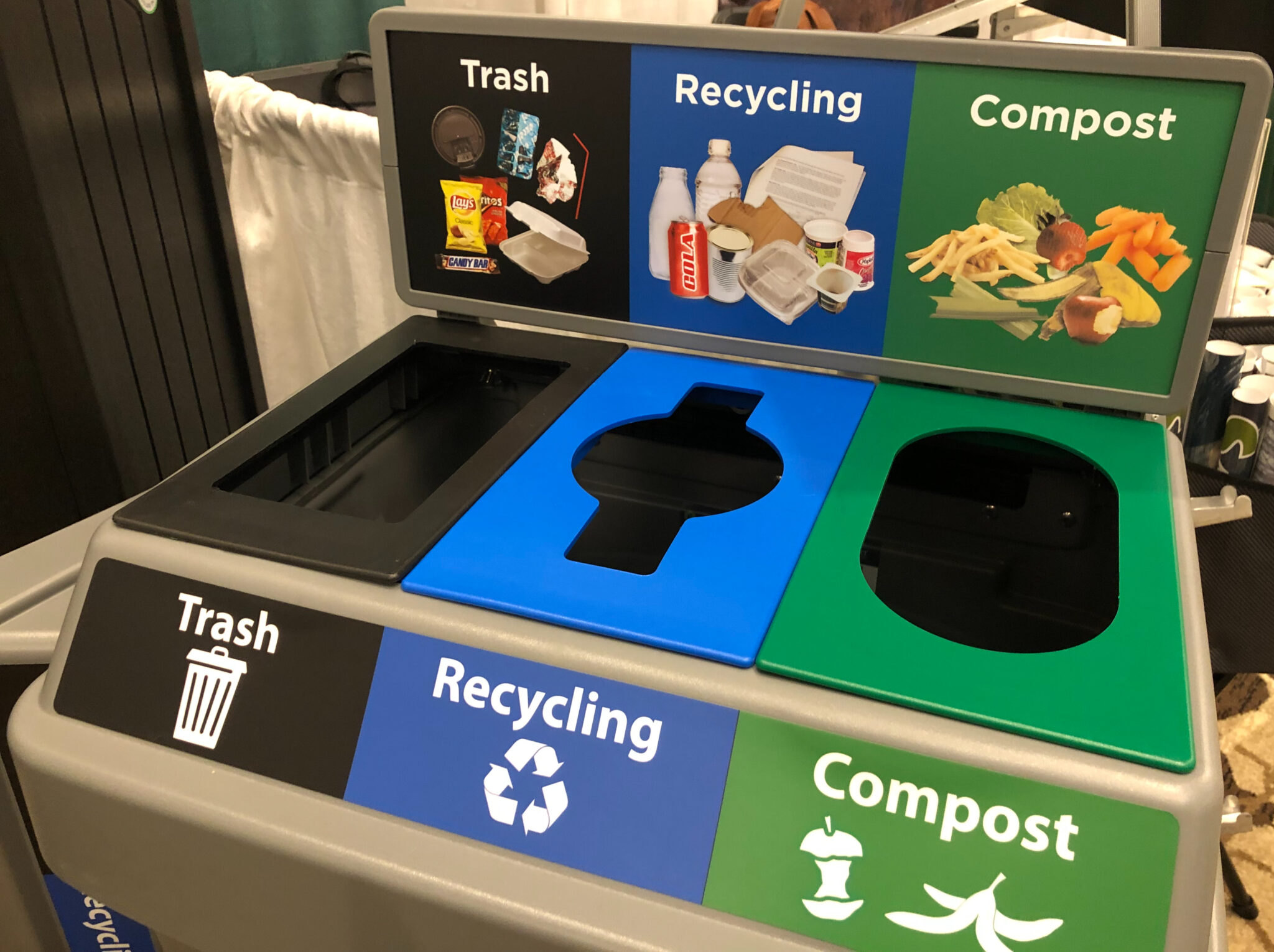‘Front and center’ issue: What progress has the state’s Solid Waste Working Group made?
by Hadley Barndollar, New Hampshire Bulletin
A Department of Environmental Services official told an audience this week he expects the next few years will be a “watershed time” for solid waste work in New Hampshire.
Speaking during the Northeast Resource Recovery Association’s annual conference on Tuesday, Mike Wimsatt, Waste Management Division director at DES, said his agency is on its way to becoming better resourced and more equipped to tackle an issue that’s gained much attention across the state in recent years.
Wimsatt spoke during a panel discussion alongside other members of the state’s Solid Waste Working Group, including Chair Rep. Karen Ebel and Steve Poggi, director of disposal operations at Waste Management, a leading service provider. The statutory committee was formed in 2021 and issued its initial report last fall.
“Unless you’ve been living under a trash can,” Ebel said, “you know that solid waste has really become front and center in the state.”

Rep. Karen Ebel, chair of the state’s Solid Waste Working Group, speaks at the Northeast Resource Recovery Association’s annual conference on May 23, 2023. (Hadley Barndollar | New Hampshire Bulletin)
Ebel, a New London Democrat, detailed a saga that began four or so years ago when lawmakers realized the state’s long-range solid waste plan, which is supposed to be updated every six years, hadn’t been issued “in about 20 years.”
The solid waste diversion goals the state had been striving for in 2000 were “nowhere close” to being reached close to two decades later.
Meanwhile, Ebel said many were “shocked” to learn of data showing that about half of the solid waste going into New Hampshire landfills was coming from out of state. This coincided with a controversial proposal by Casella Waste Systems to establish a new landfill in the North Country town of Dalton, abutting Forest Lake State Park.
Ebel said the continued discussions around new landfills is “sad,” as “other states are focused like lasers on how to stop landfilling as much as they can.”
This week, the House Environment and Agriculture Committee voted “ought to pass” on an amended version of Senate Bill 61, the last landfill siting bill remaining this legislative session and perhaps the least restrictive. The bill would direct the Department of Environmental Services to hire a consultant and embark on a rulemaking process to revise setbacks for new landfill proposals.
The committee vote, 12-8, did not come without much debate and dissatisfaction from some representatives. Rep. Kelley Potenza, a Rochester Republican, called out what she perceived to be the influence of waste management lobbyists and state agencies over lawmakers.
Though he voted in favor of SB 61, Rep. Peter Bixby, a Democrat from Dover, said House Bill 56 was a “much better bill than what we just passed.” The Senate killed that landfill siting bill last month after the House passed it, to the disappointment of environmental advocates.
Ongoing efforts
At Tuesday’s conference, Ebel and Wimsatt both outlined progress being made by the Solid Waste Working Group and DES in terms of the state’s renewed focus:
New diversion goals were established for waste going into landfills (25 percent weight reduction by 2030 and 45 percent by 2050).New long-range solid waste management plan was published.The Legislature formed a Solid Waste Management Fund last year intended to give grants to municipalities and businesses, but it is not yet funded. An amended House Bill 462 was folded into the state budget to allocate $2 million to the fund, 50 percent of which would be dedicated to food waste diversion. The Senate Finance Committee recently cut that to $1 million.Solid Waste Working Group continues to examine education efforts, extended producer responsibility, waste disposal bans, infrastructure development, and recycling markets.
Wimsatt detailed priority areas for DES specifically. The department hopes to use just shy of $575,000 in Bipartisan Infrastructure Law funding to conduct a waste characterization study. Wimsatt described it as, “What does the waste universe look like in New Hampshire? What do we generate and what do we dispose of?”
DES also hopes to do a similar study on food waste diversion, including a look at what infrastructure currently exists in the state to accept food waste redirected from landfills, such as composting businesses, farms, and more.
Because of recent legislative efforts to boost the state’s solid waste focus, Wimsatt said new staffing and funding is certainly helping the agency – they have more resources and boots on the ground.
“If you operate a transfer station, there’s probably a better chance you’re going to see us now,” he said.
How does NH compare to other states?
While New Hampshire’s Solid Waste Management Waste Fund remains without funding, Ebel said Massachusetts and Vermont have “very strong” management funds for this purpose.
“We don’t have anything like that here in New Hampshire, and I hope that changes,” she said.
Ebel also noted that neighboring states have been “really aggressive” in their efforts to reduce the amount of waste going into landfills, something “New Hampshire has really not done a good job” of.
Massachusetts has several waste bans in place, including mattresses and textiles, for example. Vermont state law bans disposal of food scraps in the trash or landfills.
Poggi, of Waste Management, said states to the south of New Hampshire are staring at a diminished waste capacity situation. Waste Management operates the Turnkey Landfill in Rochester, an unlimited service area landfill, and is fielding more requests to take out-of-state waste. Turnkey is one of three landfills in the state that can accept waste from anywhere, and the Commerce Clause of the U.S. Constitution makes it tricky for states to explicitly ban out-of-state waste.
Headed to Gov. Chris Sununu’s desk shortly is a bill passed by both the House and Senate to form a committee to study the amount of out-of-state waste coming to the Granite State.
New Hampshire currently has landfill capacity in place through 2034 based on permits that have been secured through then. About 60 percent of waste disposed of in the state is municipal solid waste, and the remaining 40 percent is split between construction and demolition debris waste, and special waste such as ash, impacted soils, and asbestos, Poggi said.

The Northeast Resource Recovery Association held its annual conference on May 23. Pictured is a “managing my waste” posterboard by the Department of Environmental Services. (Hadley Barndollar | New Hampshire Bulletin)
This article was originally published May 25, 2023.
New Hampshire Bulletin is part of States Newsroom, a network of news bureaus supported by grants and a coalition of donors as a 501c(3) public charity. New Hampshire Bulletin maintains editorial independence. Contact Editor Dana Wormald for questions: info@newhampshirebulletin.com. Follow New Hampshire Bulletin on Facebook and Twitter.
